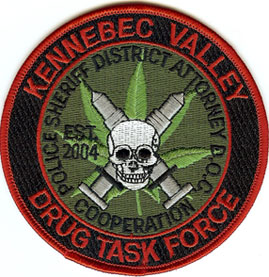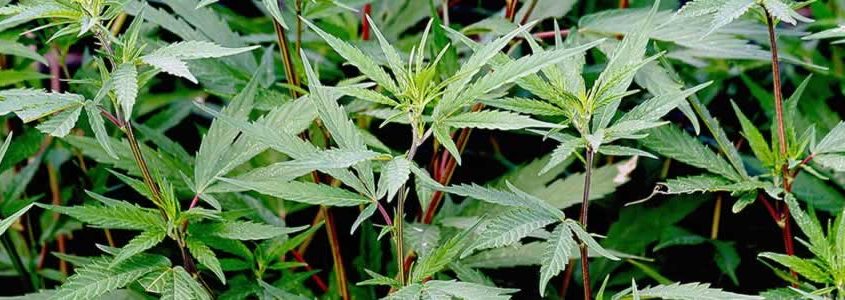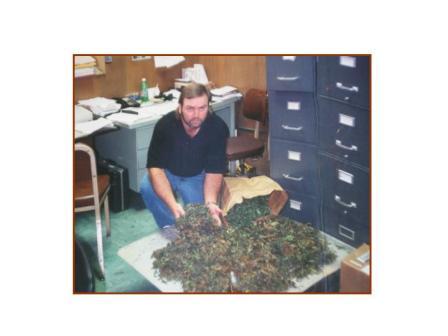Narcotics Officer: Not Your Normal 9-5 Job
There’s one job within the police department that really takes special skills, patience, and abilities. It’s a demanding job that requires long, late-night hours, working in extremely dangerous situations, and hanging out with some of the worst criminals in the country. The job – narcotics officer.
Police departments take drug crimes seriously, and they take a proactive approach to locating and arresting illegal drug dealers and manufacturers. One reason they take such as hard stance against illegal drugs is because drug activity is often the cause of other major crimes, such as prostitution, larceny, rape, robbery, and even murder.
Drug crimes often spill over from one jurisdiction to another, so in order to better combat the illegal activity police agencies sometimes join together to form a drug task force. These task forces are often comprised of members from local police departments, sheriff’s offices, state police departments, DEA, FBI, ATF, etc. The officers in these task forces have jurisdiction anywhere within each of the member’s home county, city, or state.
Task force members receive specialized training in drug recognition, proper search warrant service, high-risk entries, undercover operations, drug slang and terminolgy, pharmaceuticals, and other areas relating to drug use and abuse. They’re also trained to locate marijuana growing operations.
To locate outdoor marijuana growing operations, police look for certain things, such as:
– Farm paths that have locked gates.
– Water jugs and fertilizer that’s been strategically placed along footpaths.
– Well-worn footpaths.
-People who regularly visit isolated woodlands.
To locate indoor growing operations, police look for:
– Air-conditioned outbuildings
– Outbuildings with plumbing and electricity.
– Stacks of potting soil and fertilizer
– Unusually large purchases of fertilzer, grow lights, and potting soil.
– Unusually high utility bills.
Indoor growing operation
Officers spend lots of time walking through wooded areas and other prime locations during the marijuana growing season. They also use helicopters and small planes to fly over suspected growing areas. Marijuana has a distinctive blue-green coloring that’s quite visible from the air, even in thick, wooded areas.
Looking down on marijuana plants from police aircraft
Marijuana plants stand out from the surrounding brush. Also, footpaths leading to the crop are like flashing neon lights to officers. Some growers attempt to hide their crops by draping camoflaged netting over their plants. They also grow individual marijuana plants in plastic five-gallon buckets so they can move the entire plant if they think the police may be getting close to their operation.

Confiscated marijuana
Drug task force shoulder patches:








Back in the early 80’s I was living in Los Angeles and we’d rented a house up in the hills overlooking the Hollywood Freeway. We didn’t really know our neighbors. They left rather abruptly one day and the property owner who owned both the place we were in and the house next door, hired my boyfriend to go in and start cleaning things up for him. Well we went over and the whole front yard was a real jungle, dense, tall plants everywhere. We soon found out why: there had to have been a good dozen 5-6 foot marijuana plants set amongst all the other greenery. Never did learn why they split so quick, maybe they were nabbed by narcotics, though the police didn’t know about the stash until we told them. One of many interesting times I had in L.A.
Zail – I chose just a few to post. Believe me, there are many, many more patches with designs a lot creepier than these.
[I]It’s amazing that the huge electric bills of the indoor growers don’t make them think that, duh, the bills could be red flags. Must be something they’re smoking…[/I]
Hey, Peg…if they were truly intelligent, they wouldn’t be growing pot. 😉 Yeah, got to be something in the air.
The logos for the different task forces are very interesting… Kinda creepy!
(long-time lurker finally making a comment… =p)
{The trick is staying upwind.} Or downwind depending on…oh, never mind. LOL
It’s amazing that the huge electric bills of the indoor growers don’t make them think that, duh, the bills could be red flags. Must be something they’re smoking…
Okay, I finally have an answer about the upside down guitar in the Clinton Presidential Library. I’ve posted it in the comments section for the Clinton Library Weekend Road Trip.
Lee – I, for one, preferred the follow up investigations, rather than drug work. Dug enforcement was interesting, but I guess I preferred the idea of “solving” the case after the fact, rather than catching the crook in the act (though each type includes some of the other.)
And you’re correct, the S.O. dealt more with large numbers of plants, as they had an annual operation in conjunction with the State BCI to locate marijuana crops in the open. The city’s grow operations were either inside, or just a few plats outside – either way, the most we’d usually get would be a couple dozen plants.
All drugs and contraband destroyed by our department were disposed of in a big furnace they were taken to by the property room folks, after obtaining a court order to destroy the items.
Dave – Good point, and that’s why I made the comment about narcs being proactive in their fight against drugs. It would be great if officers could be more proactive, instead of reactive, with all crime, but there’s just not enough cops to go around.
Narcotics work was one of my favorite parts of law-enforcement, and I think that was because we were able to stop a crime before it happened.
So, Dave, how did you guys destroy marijuana plants? I know you had to run across a lot of it. The area where you live is prime country for growing the stuff. Maybe, the sheriff’s office dealt with it more than you city guys. How about Sheriff Kelly’s folks? How’d they destroy confiscated pot plants?
Hi Lee.
One observation I wanted to make is how different drug enforcement is from other investigative jobs. Very different, in fact.
Most police investigation assignments are after-the fact, trying to find out who committed a crime that has already occurred, whereas drug enforcement is usually geared more toward catching the crooks in the act.
It also involves a lot more surveillence and actively working with informants, most of whom are in that position because of their own criminal activity.
I worked drugs for a short time, but I learned a lot in that time.
Are the drug runners still flying loads in from SA under the radar to land in remote areas of places like GA?
I think our SO likes the idea that everything goes poof! all at once. And since there’s no cost involved, it works for them. I’m sure the guy who owns the smelting place gets a very nice tax write-off.
Terry – There are much safer ways to destroy drugs, and I’ll be showing one tomorrow. But, in many areas of the country it’s just not feasible to haul several dump truck loads of marijuana plants to a burn facility that’s hours away. So, officers stack the plants in huge piles, in an open area, and then set the piles on fire. The trick is staying upwind.
The Orlando sheriffs take their drugs and firearms to a smelter (is that the word?) who volunteers his facility a couple of times a year. Vaporizes everything.
The drug room in the evidence builing is a potent place. They used to have desks in there where people worked, but that didn’t last long. Our tour through that room was only about 15 minutes, maybe less…time seemed to lose all meaning for some reason.
mnboater – That’s a common problem. Many marijuana growers feel that it’s more difficult to prove the plants belong to them if they grow them on public property. Not so. Once the plants are located, sophistcated surrveillance equipment allows officers to watch the daily trips made to the crop for watering, weeding, and fertilizing. Of course, the police don’t catch them all, but who knows which ones they will catch. It’s a crap shoot for the growers.
By the way, we used to get calls from hunters and hikers all the time after they’d stumbled upon a forrest of pot.
When we volunteered with the National Park Service, the park officials told us of the problem they had with locals growing pot within the park. The park was so big, the terrain so rugged in some areas, it was the perfect foil.
Joyce – I really believe that nearly all crime involves drugs in some sort of way – use, abuse, sales, etc.
We used to have a pot plant growing in our office, too. Then we figured out it was illegal for us to grow, too. Duh.
Christa – There are some pretty sophisticated grow houses/rooms out there, and they’re common all across the country.
Hey, we used to conduct those controlled burns all the time. We’d haul truck loads of marijuana plants to the landfill to torch them. Afterward, we’d all hit the nearest 7-11 for chips, M&Ms, and handfuls of Snickers bars. 🙂
I hope that sheriff’s deputy was wearing a filtered face mask. Cause, duuuude, that’s a lot of pot smoke. 🙂
I read something about how the bigger drug cartels are financing the purchase of large houses in gated communities ($450k and up). The growers then completely gut them, rig hydroponic systems, and use the houses to grow pot. The only reason they were found out was the lack of vehicles/lawnmowing/other human activity. I don’t know how widespread this is outside of California….
Allegheny County and the Attorney General’s office have drug task forces in the Pittsburgh area. A lot of our officers participate. It seems to me that almost all the burglaries and retail thefts in the area are drug related.
When I first started working for the PD I couldn’t figure out why someone would steal steaks from the grocery store. One of the detectives told me that junkies steal them and sell them to restaurants.
We used to have a marijuana plant in our squad room. Not sure where it came from or what happened to it.